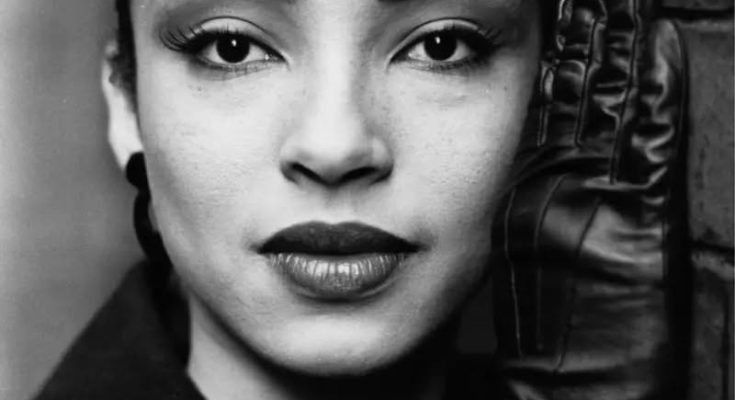In the quiet spaces between notes, where years stretch into silence, a voice long missed has re‑emerged. After seven years of absence from releasing new music, Sade Adu—herself and through her eponymous band—returned in 2018 with a tender, haunting song titled “Flower of the Universe,” composed for the soundtrack of the Disney film A Wrinkle in Time. This is not merely a comeback—it is a gentle reawakening, a reminder that this artist, whose presence is measured, deliberate, and deeply emotional, still cares to speak in song.
From the outside, Sade—the stage name and also the name of the band—has always been a creature of mystery, one given to long silences. Her last full studio album, Soldier of Love, was released in 2010 after a long hiatus following Lovers Rock (2000) In 2011, the band put out The Ultimate Collection, a compilation including bonus cuts, but no fully new material followed) Thus, from 2011 until 2018, fans waited and wondered. The silence was not always empty—her reputation, legacy, and the memory of her signature sound stayed alive in playlists, covers, radio spins. But for many, nothing could replace the delicate thrill of hearing Sade deliver something new.
The announcement of her return came unexpectedly. Filmmaker Ava DuVernay, preparing A Wrinkle in Time, disclosed that she had succeeded in securing a new original song from Sade. On Twitter, DuVernay shared, “I never thought she’d say yes, but asked anyway. She elaborated that Sade was “kind + giving. A goddess. We began a journey together that I’ll never forget.” For DuVernay, the collaboration was artistic and personal, so much so that she later revealed she had “reverse engineered the usual process and used her lyrics as actual dialogue within the film.” Sade’s voice, she implied, would not just accompany the movie—but be woven into its narrative fabric.
On March 7, 2018, Flower of the Universe surfaced. The track is credited to Sade (Helen Folasade Adu), Andrew Hale, and Ben Travers, with production by the same trio. It debuted as the lead single from the A Wrinkle in Time soundtrack. As with much of Sade’s catalog, the style is restrained, emotional, intimate. The arrangement does not rely on heavy instrumentation or bombast; rather, it rests on acoustic guitar, subtle harmony, and Sade’s signature quiet-soul voice. In a review for Pitchfork, the song was described as marrying maternal and cosmic themes—her lyrics reaching to both earth and sky.The production touches subtly on atmospherics, but the gravity always remains with her voice.A remix version by No I.D. was also released, adding a different texture, but even that retained the core of what makes the song so affecting.
Critics received Flower of the Universe warmly. The Washington Post remarked on how the song, instantly recognizable as Sade, anchors the film—“audiences won’t miss it.” NPR praised its lush, hushed sway, saying it felt classically Sade even in a new context Spin noted that the track resonates with the extremities of solitude and strength, like Soldier of Love before it, but in a quieter tone. Some commentators saw it as a guarantee that Sade’s voice, subtle as ever, still has the power to captivate. In Consequence, the return was framed as a gift—“Sade is back with new music” after those silent years) Even the Vogue headline announced it simply: “For the First Time in 7 Years, Sade Has a New Song.”
But beyond critique and headlines, the real weight of Flower lies in its emotional core. At its heart, the song feels like an address to a child—or to all children—as a maternal reassurance and cosmic blessing. Lines like “They hear you when you cry / This love is far and wide / When you smile, the stars align / Flower of the universe / Child of mine” speak with both intimacy and expansiveness. t’s a reaffirmation of belonging, of solace, of presence. Time may slip away, years may pass, but the love she offers in her voice persists beyond the immediate moment.
The return is particularly resonant given the nature of Sade’s public persona. She is not an artist given to constant output or public spectacle. Her career has long embraced intervals of withdrawal, of silence, of letting life and reflection guide her reemergence. Soldier of Love itself came after nearly a decade without new albums. That cadence—of creation, pause, life, return—has become part of her mythology. So, in some ways, Flower of the Universe is less a surprise and more a faithful continuation of that pattern: she returns not because markets demand it, but because she has something to say. In a 2018 interview, the band’s Stuart Matthewman mentioned that they were already working on new material, writing “a bunch of songs,” but that Sade tends to wait until she feels the moment is right.
Indeed, following Flower of the Universe, Sade remained selectively present. Later in 2018 she issued “The Big Unknown” for the soundtrack of Widows, extending her comeback beyond a single moment. But she has not released a full studio album since Soldier of Love. Between 2018 and now, she has remained largely quiet, focused, as ever, on letting art emerge in its time.
Curiously, in 2024 she again released a new song—“Young Lion”—dedicated to her son, Izaak, a transgender man, as part of the Transa compilation by the Red Hot Organization. That marks her first new work since the 2018 soundtrack contributions, and suggests that the pause she maintains is not absolute, but responsive to what matters. Young Lion is an emotional, personal statement, indicating that Sade’s reemergences tend to be motivated by intimate purpose rather than commercial ambition.
In reflecting on Flower of the Universe and Sade’s return, one is drawn to the paradox of absence and presence. In her years away, listeners have learned to inhabit silence, to carry her music in memory, to feel her voice in the gaps. And when she emerges, it is as though she re-enters on her own terms—softly, but with gravity and care. The intervening years don’t feel like a hiatus so much as a slow gestation, a allowing of life to deepen, so that when she sings again, each note carries more weight.
To listen to Flower of the Universe now, several years into its existence, is to feel that weight in retrospect. It doesn’t feel like a novelty; it feels like a message delivered across time. It feels like she never truly left, because her voice has been echoing in the spaces we inhabit. Which is perhaps the best possible return.
If you like, I can send you a polished, narrative version (tightened or expanded) or even an analysis of the lyrics and themes. Would you like me to edit further or add that?



